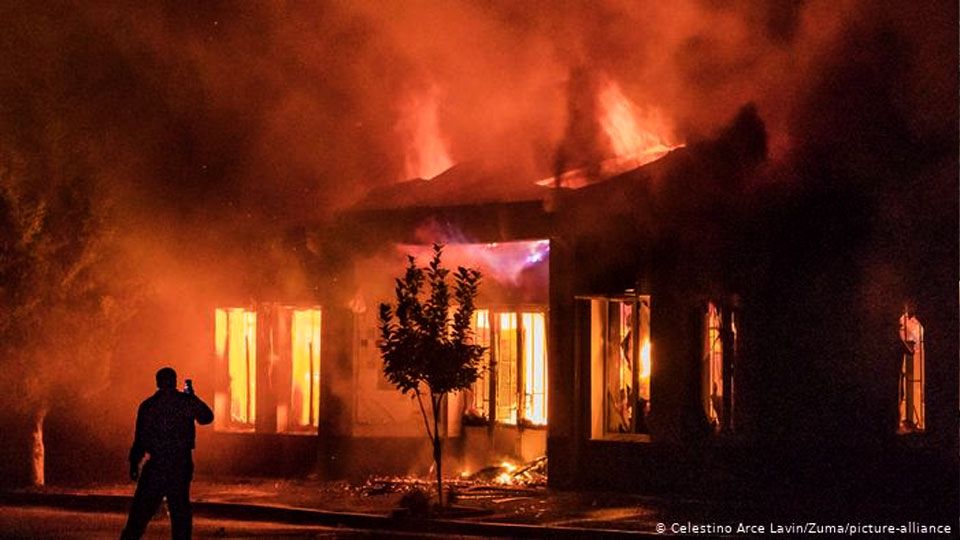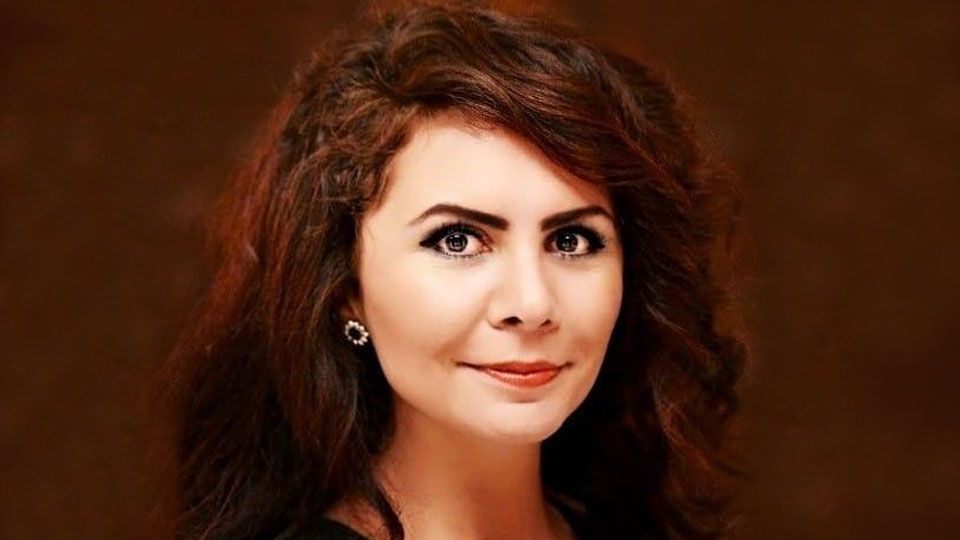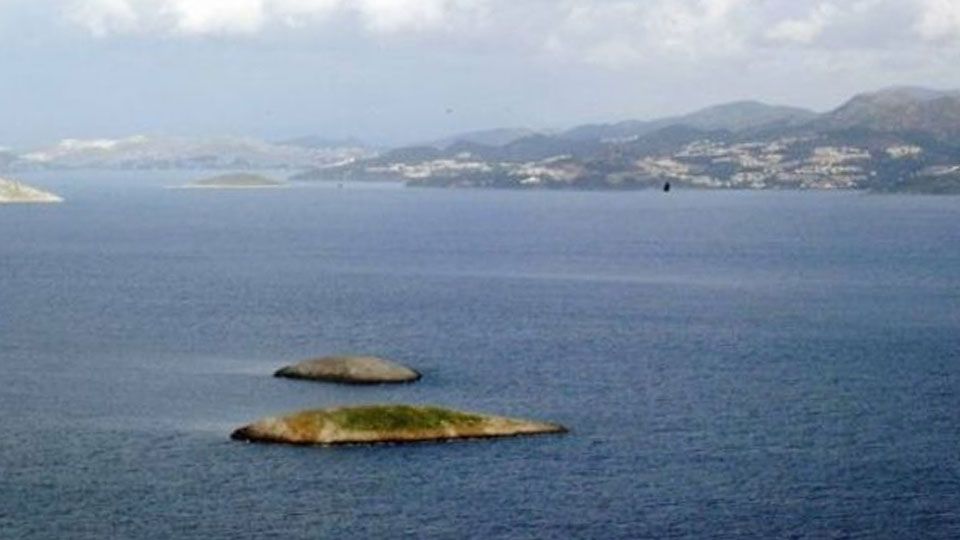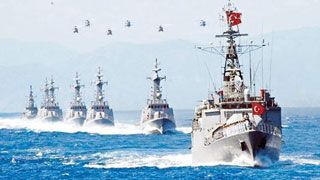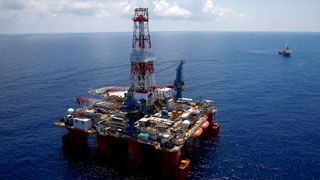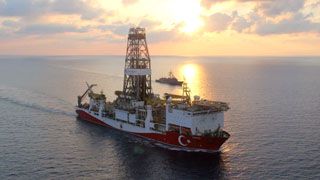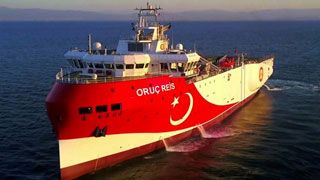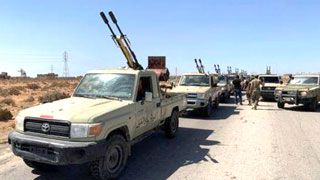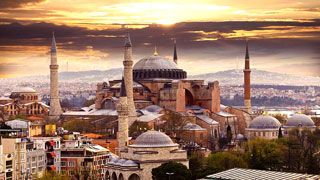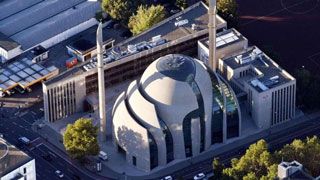-
![]()
5 October 2020
RIGHT TO RECLAIMEser Turan
Imagine your neighbor invades a huge part of your property one night, beating you to a pulp, the very week your brother survives a brutal accident, hospitalized in a comatose state.
You approach authorities to regain your property, but the law enforcement disappoints you. You take the issue to court but the real estate mafia threatens and bribes all involved. After three decades of a legal quagmire, you start to fight to reclaim your land with your deed in hand.
This sums up the case for Azerbaijan's suffering in the 1990s, when Armenia illegally occupied 20% of Azerbaijan’s sovereign territory, known as the Nagorno-Karabakh, ruling it under a legal-sounding 'Republic of Artsakh' title, in an attempt to make the occupation look like a heroic act of liberation.
The Armenians killed 26,000 and expelled 800,000 Azeris, making the conflict a horrific case of ethnic cleansing. Paradoxically they committed these crimes while expecting the world to respect their supposed genocide suffering, which history proves to be an exaggeration of WWI casualties redefined to invade Eastern Turkey.
The double standard on the genocide conundrum makes Nagorno-Karabakh a litmus test on the Armenian reality, one filled with lies and deceit, witnessed in their crafty redefinition of 'mutual massacres' as 'genocide'.
As sinister and sly as it is, using victimization techniques to gain support and become the villain is the definition of 'smart' for Armenians. Proud of their mental ability to brand crimes as rights, vice as virtue, and lies as truth, Armenians have a horrible habit of dealing with the devil and posing as angels.
Forming terror organizations and raiding Anatolia as Russian ploys to dismantle the Ottoman Empire, the heinous crimes committed by the Armenians against Turks over the past 150 years is at such an unsurmisable level that no country on earth can relate to the Turkish pain.
The history of Armenian atrocities experienced during the 624-year history of the Ottoman Empire is so detailed that in today's world the closest approximation is only possible by drawing analogies and comparisons on the 244-year history of the United States.
So, when we mention 'Armenian Revolt' for example, we refer to a situation that translates to today's U.S. as something like the American Jews, regardless of their power in the Senate, getting seduced by Russian-backed hopes to believe that "it is time to have a country of their own".
The rebellion would be launched by the rich Jewish-American elite, led by a famous Jewish character like Hollywood bigwig Steven Spielberg, supported by famous Judeophiliac celebrities such as Helen Mirren and the like. They would be leading a silent revolt, organizing secret cult meetings to program followers to rally masses towards a brutal criticism of the American system on social media networks. The revolt would be based on a spin-off of the 'self-interest' concept introduced by the famous Jewish-Russian immigrant Ayn Rand's objectivism so that their vicious acts would have philosophical backing.
The next phase would be to organize mass media rants on the country's "never-ending financial crisis", which they would argue is an indication of an unpronounced collapse, a justification of a 'kill-or-die' case for all, sordid enough to catapult the financing of militia-looking-terrorists (likely to be outsourced to Armenian-Americans) to raid towns across the country simultaneously.
Once decades of constant chaos and infighting is underway, the countrywide terror would set the scene for the Chinese-Russian-Iranian-Pakistani-Afghani pact to invade, launching a WWIII of sorts on the continental US. Then it would be time for some 'United No More' campaign that would make it quite lucrative for the governors of all 52 states to declare independence and "write history" as presidents.
After four years of fighting and millions of casualties, the Americans would eventually launch an independence war led by a holier-than-thou, "God-sent" Jewish convert surprisingly surviving all betrayals and assassinations but fancying a dismantled version of the US. As neighboring states agree on becoming eternal frenemies, the revolting Jews would be busy building their own nation, some 'BosWash Republic' on the wreckage of the NorthEast.So far, this approximates the first 50 years. The next 100 years would have the BosWashians using their power in global media to launch a 'genocide claims' operation worldwide over their WWIII casualties, rebranding the fallen terrorists as 'genocide victims', to grant UN-backed rights to occupy the East Coast.
While that smear-campaign takes leaps with bribed countries and threatened celebrities around the world declaring shotgun support, they would finance dozens of serial assassinations on diplomats from the West Coast states, to make sure that their smear campaign will not be debunked.
And when that gets old, they would organize coups in rivaling states, hang local heroes, and go back to their militia-looking-terrorists-raiding-towns plan, designing bizarre bandit profiles grouped under stupid acronyms to reason the supposed "grassroots gathering" and "branching off" of the "rebellion for the liberation of the abused minorities" to justify a 40-year terror campaign set to camouflage a highly profitable coke-trading industry financing BosWashian economy.In this scenario, New York and the surrounding states would approximate Armenia, while Chicago and Northern States would approximate Azerbaijan. The approximation of Nagorno Karabakh would be more like Michigan, invaded by BosWashians for 29 years, waiting to be liberated.
As this quick example conveys, the obnoxious Armenian mess is so hellish that the International Turkish community is deeply entrenched in the Azerbaijani suffering. In full support of the Azeri cause, we dedicate this issue of Turkuaz to highlight the Azerbaijani brilliance:
The musical genius of father-daughter Mustafa Zadehs will delight you and the success story of Adil Baguirov will make you proud. The championships of the exiled Azeri football club Qarabag Agdam will give you chills while the grandeur of Mangal Steak House will motivate you to plan a trip to Baku, using Senay Akkurt's travel tips.
Praying for Nagorno-Karabakh and wishing Azerbaijan a great victory, let us all keep a close watch on the news. Times are definitely changing.
Eser Turan
Founding Editor -
![]()
28 September 2020
EQUAL RIGHTSEser Turan
Last week was a jarring time, full of shock and dismay. First, an exiled journalist targeted for reporting anti-Kurdish atrocities, Abdullah Bozkurt survived an attack in Sweden. The next day a former member of Turkish intelligence approached the Austrian authorities and confessed an assassination plot against Aygul Berivan Aslan, a vocal Turkish-Austrian politician of Kurdish descent. And that same day, Turkey arrested six HDP parliamentarians voted by the country's Kurdish minority.
These three incidences indicate Turkey's growing anti-Kurdish stance. They also say a lot about Turkey's politics and intelligence and communicate much more about the fragility of our community's existence in Europe.
Regarding security, if it takes a confession to prevent an assassination plot in Vienna, and if a gang can attack a journalist in broad daylight near his home in Stockholm, the EU is falling short of her promise to protect her citizens.
Regarding Turkish politics, it is clear that Turkey's 40-year fight with the PKK and FETO have taken a toll on the Turkish tolerance for Kurdish minorities. The situation is so grim that the Turkish psyche sees terror as a byproduct of the NATO membership, and in seeking an alternative, Turkey sympathizes with unsecular Eastern regimes that harbor inhumane practices.
And when it comes to Kurdish rights, Turkish people have seen the country's Kurdish minority become a plaything of NATO. The Kurdish image in Turkey has suffered the highs and lows with two famous Kurdish-Turks, former Turkish President Ozal and PKK leader Ocalan, as part of NATO's politics in the Middle East, and the majority of the country has lost trust in the Kurdish minority.
So in this issue, we present you accomplished Turkish expatriates of Kurdish descent. They have immigrated under trying conditions, worked hard to achieve their goals when offered equal rights.
Turkish-German businesswoman Yasemin Dogan and her brothers Huseyin and Ceyhun share the pride of offering high-quality food with a cultural twist at their trendy cafeteria brand Bona'me at six popular locations in Germany.
Turkish-German fashionista Dilara Ozcan boasts over 3 million followers on Instagram. She and her husband manager Veli Avci share their breath-taking trip to the Maldives.
Turkish-Dutch rap star Murda, and Turkey's rap sensation Ezhel support the Kurdish cause in ways unnumbered. Ezhel just started his two-month concert tour across six countries in Europe; so make sure to get your tickets in advance.We leave you with news of Tractor Sazi's championship success in Iran and wish you a wonderful week of faith and fruitfulness.
-
![]()
21 September 2020
PROXY WARSThe Arab Spring was a wonder in many ways. Not just for initiating a wave of anti-government protests, but also for managing to work its way up to Turkey's southern borders, only to devastate the region for a hefty nine-year period, widely known as 'The Syrian War.'
While the world got accustomed to the insoluble nature of this unending war saga in the Middle East, Turkey disengaged courageously and fought terror, coup attempts, and economic obliteration threats.
Sadly, the EU treated this critical period with unnerving fatalism; the European nonchalance has been inexplicable, especially against the refugee invasion threat, destined to destroy the cushy lives designed for the 'global elite'.
Overall a cynical look at the big picture reveals that the Arab Spring and the Syrian War are parts of a grand scheme to pave the way for WWIII, to divvy up the Middle East further.In stark contrast to Syria, Turkey firmly stood her ground and dismissed all political hooks provided, which in effect angered the mob and the warlords involved. The causality design had to change its course, and a new set of conditions that conceal warmongering nations via proxy wars are introduced. In many ways, this possibility better explains the reasons behind the contrived nature of the ongoing Eastern Mediterranean dispute.
Furthermore, it is also safe to suggest that a silent war launched back in 2010 to avenge the ridicule on the Israeli soldiers aboard the Gaza flotilla has in time ricocheted into a series of proxy wars against Turkey. After all, it may just be that a passive-aggressive reflex turned the Mediterranean into an unlikely billiard board, passing the harassment role first to France, then to Egypt and Syria, and most recently to Greece and Cyprus.
Proxy wars are nothing new though. Initiated by the intelligence work of Bell and Lawrence, the Ottoman lands had crumbled to pieces, for not knowing how to fight them. The Turkish Republic is built on a unique level of expertise with this type of warfare, which is why Turkish sovereignty stays intact, unharmed by the proxy wars in the Middle East.So what's new? What makes Greece militarize demilitarized islands? And how can the Greek press feel comfortable in using foul language at the Turkish President? The EU may feel justified questioning Turkey's end goals over an energy survey, but all it does is to have the world question the EU's end goals in all this.
In this issue, we hail the work of a Turkish-American analyst Nigar Goksel, who works at a counter-terror group, with a famous Turcophile, the revered British author Hugh Pope, best known for his books 'Sons of the Conquerors' and 'Turkey Unveiled'.
We also recommend 'Power and the People', a great read on the golden age and chaotic downfall of Athenian democracy, co-authored by a bright Turkish-British journalist Alev Scott.
Wondering about the terror-stricken lands, we follow the travels of globetrotter Emre Akkoyun, a brave vlogger sharing his day-trip through the troubled Northern Iraqi cities, Suleymaniye and Erbil.We celebrate Turkish-British actress Farah Zeynep Abdullah for representing our community on Turkish TV with "Masumiyet Apartmanı". A Turkish restaurant in her hometown, Ishtar, invites us for a trip to London, and we rejoice the success of Toprak Razgatlioglu at the Superbike World Championship in Spain.
Praying for a future of peace and harmony, we wish you a great week. -
![]()
14 September 2020
FATES INTERTWINEDAfter an exhausting week of diplomatic mishmash around the Aegean, here's a quick synopsis of last week's installment of 'East Med Madness', the Greek soap opera hell-bent on starting some war with Turks:
Realizing that the paranoia prank does not deter Turkey from drilling, the Greeks resort to a slew of unconventional measures. First, an impromptu fire destroys the shelters of 13,000 refugees at the Moria camp on the island of Lesbos (Midilli), threatening Europe with a refugee invasion.
France decides to lavish the Greeks with a controversial "Pax Mediterranean (Sans Turquie)", hosting leaders of Spain, Italy, Portugal, Malta, and Greece in Corsica. There they chant colonialist rants, stating "Turkish people deserve better than President Erdogan".
President Macron then kicks into high gear, baptizing the alliance with the sale of 18 Rafale fighter aircraft and a major military upgrade, which encourages the Greeks to arm 18 islands and violate international agreements.
Posing all innocent, President Sakellaropoulou flies to the contested itty-bitty island of Kastelorizo 2 miles off of the Turkish coast, while Greek soldiers embark on a rickety Hellenistic mission on civilian transport in full Trojan fashion.The situation then alarms Americans and they send Secretary Pompeo to pacify the pompous Greeks. He tells them that a couple of frigates are not enough for an invasion but the wailing gets worse. He signs an MoU between the Greek Cyprus and the USA and leaves it to Turkey to deescalate the situation. Turkey decides to pause the drilling to disprove rumors of an invasion.
We try to take a break from all this by watching 'The Gift' on Netflix but the whirlwind of events there surpass the Eastern Mediterranean dispute. A great cast and exceptional acting ease the pain of watching an 'Oktar meets Gulen' type of a world domination cult, but the forced marriages of mystical characters ordered via telepathy make us worry about FETO's astral shenanigans.
Enticed to explore the occult, we install the 'Faladdin' app and brew some fresh Turkish coffee on our Okka Minio to receive a free reading. As we sip our coffee, we think of the cult executive and what devilish missions he would carry out in the East Med Madness.
We upload a photo of our coffee grounds and receive a free digital consultation that tells us to think like our opponent. Wondering if countries and regions do walk the planet in human form, we think of Turkey and the region, and the political hurdles following the establishment of Israel.Our vloggers of the week help us with their day trip video in Tel Aviv. We look for Turkish traces there and discover Onza Restaurant. As we think of what Israel would look like in human form, we picture an American citizen fighting anti-semitism. Wondering if she would empathize with Turkish-Germans like Enver Simsek falling victim to Neo-Nazis in today's Germany, we plan on reading his daughter's memoir on the murders of the racist Neo-Nazi cult, NSU.
Cheering on Mustafa Kapi's transfer to the French club Lille, we pray for the success and welfare of all our expatriates.
Wishing you a safe week, free of racism. Best! -
![]()
7 September 2020
COUNTERING COUNTERPHOBIAWelcoming a new month and a new season, we enter a new era where the political wit and diplomatic wisdom of the International Turkish community proves to be more critical than ever.
We owe this unique period to Europe's counterphobic reactions against Turkey's moves towards economic independence. With France and Austria leading the Turkey-bashing charade, some EU countries debate whether Greece's presumptuous suspicions are right in interpreting Turkey's energy surveys as camouflage for invasion.
Whether that pretext sets the scene for war between the EU member Greece and non-EU member Turkey clashing their NATO-member militaries in the Aegean or not is definitely good fodder for prime time news but in reality, it is going overboard.
No one knows what sparks this paranoia but when the Austrian Chancellor Sebastian Kurz becomes the unexpected front man of the European angst against Turkey, it does look like some people are going off the deep end over Turkish presence in Europe.
Oddly enough the supposedly unforced, 'self-confessed' and unnamed spy case in Austria working for the Turkish Secret Service, is followed by the desperation of Chancellor Kurz openly pleading that the Europeans 'not give in to Erdogan'.
As the case says more of Europe than Turkey, it indicates various spy scenarios brewing in the minds of the European elite and makes one wonder if Kurz has any idea of the scale of the European intelligence running amok in Turkey for decades.
He may also need to be informed that Austria backing Greece in the 'Turkish invasion paranoia' actually looks as absurd and insane as Slovenia hypothetically throwing a fit over Austria's energy surveys at a border town, with Serbia backing Slovenia against Austria, hollering "Giving in to Kurz and Austria, would be saying good night to the Balkans".
Maybe in this new period, we will need to draw more of these geographic and demographic comparisons to save our European friends from such embarrassing rants. Or maybe we just need to remind them of the running Turkish joke on this topic, which says that "if Turkey wanted to invade the 10 million population of Greece, all that's needed is to have the 18 million population of Istanbul pass the border as tourists".The joke implies that Turks do not need expensive energy survey spending to invade, but we are talking about the Trojan-minded Greeks, carrying the genetic makeup that prides on winning wars through hiding soldiers in a gift. That deceptive mindset so bent on hiding the reality naturally expects the same from their perceived enemy.
Turks are used to announcing their conquest with a loud band of musicians, the 'Mehteran', marching before the army to scare their enemy. So the Greeks and their European chaperones just have to accept that warrior Turks with their second-largest army of NATO fame will not resort to carrying out a silly invasion plan with their military warships dedicated to protecting an energy survey vessel.
So let's all take a break from this madness and look at our pride and joy in Europe: Turkish-Austrian fashion designer Atil Kutoglu is one of the first names that comes to mind. Turkish musical genius Fazil Say partly living in Vienna is another great example. We also have our world champion fencer and model Elke Lale van Achterberg launching a modeling agency. And our globetrotter of the week offering a display of the Turkish appreciation of Vienna should be good enough for Kurz.
Celebrating Caglar Ertugrul's Best Actor award, feel free to recommend "Scent of My Daughter" to your European friends. The Turkish-American production portrays the harrowing consequence of the 2016 ISIS attack in France, which took place most likely because of European paranoia disregarding Turkey's NATO-border-patrolling intelligence.
Wishing you a great week countering counterphobia. -
![]()
31 August 2020
ETERNAL HOMEAnatolia is a magical place, full of divine peace and harmony. Cradle of civilizations and home to many prophets, the rich and fertile land is constantly coveted for its vast agricultural potential.
Harvests run commerce and commerce relies on the power of communities, which benefit from democracy and community-oriented policies. These practices set a stark alternative to the neighboring dictatorships built on drier, rockier, less bountiful lands and envy runs politics.
The rivalry in the region sets the biggest political contrast in human history. Starting with the Trojan Wars, coming up to today, Anatolians learned that rivals turn to enemies and enemies gang up to invade and plunder Anatolia's riches.
That Greek onslaught of 1,260 BC benefitted immensely from the era of Prophet Moses, the spiritual leader of Egypt. The Nefertitian capitalism of the time was also critical, as it had forged the historical Egyptian alliance with the Greeks. Achilles was the legendary Greek fighter whose zeal and combat inspired cruelty in Roman Emperors like Caligula, the name that ordered the crucifixion of Prophet Jesus.
This is all to say that Greeks, Egyptians, Romans, and Jews have been inseparable allies for over 3200 years. When we look at global politics today, it would be a shame not to analyze the chasm between East and West without this information. For that matter, the United States deserves to be seen as a protege of Western politics, an extension of Caligula, and his political heirs in the Vatican.
Swordfighting between Hector and Achilles may have transformed into aerial dogfights between F-16s, but the animosity stays the same: Greeks still harass Turks, Egyptians fight Libyans, Israelis slaughter Palestinians and Moses people still detest anything and everything about Jesus.
What has changed in three millennia is the alchemy of Anatolian resistance. When the Greek-Roman authority turned into the Byzantian Empire, the Anatolian response was to welcome Turkish warriors from the East and fight off the Byzantian rule.
The Turkish gene, that expertise in warfare, granted the victory in the Battle of Malazgirt and started a new era in Anatolia and beyond. A major turning point that tipped the scale of global politics, the Turkish control of Anatolia transformed into the Ottoman Empire and shook Europe to its core.
So when we celebrate Victory Day, travel to Europe, boast about a global Turkish brand, or cheer for a Turkish-German team, we do it with the power and pride of having fought for our independence, having bled for Anatolia, having made it our eternal home, a place we can always call our own.Committed to a future of peace and harmony, we wish you a great week of celebrating Turkish independence.
-
![]()
24 August 2020
VESSEL OF HOPEA record achievement in Turkey's energy surveys, tapping into a Black Sea natural gas reserve of 320 billion cubic meters set a new milestone for all things Turkish.
With plans to depart from the NATO alliance and getting a constant slack for it via economic obliteration threats, this discovery and many more are destined to be pivotal in Turkey's independence.
Seemingly only a political issue with heavy militaristic undertakings, Turkish independence actually hinges on a psychological departure from the overbearing European supremacy bent on pooh-poohing our Ottoman heritage.
Seeing ourselves in a new light is not easy, since we live in a world cluttered by the European Orientalism of the 19th-century. The Western aristocracy of the time exploited inventions of photography and film to brainwash the masses to chart out the image of today, relying solely on the limited information provided by inexperienced white racist informants, with no academic study or facts to substantiate their subjective views.
Similar to the 'rough diamond Turk' images in award-winning 'Toprak', the biased imagery created at the time was explosive enough to rally the Western powers to start WWI with predetermined agendas to dismantle the Ottoman Empire. Just like drawing lines on a body to dissect the parts, Europe fully financed all interested parties to map out the current day borders of the post-Ottoman republics.
The result may have calmed the European intelligentsia in their ivory towers, but the skewed view of life is the cause of global unrest.
While the mental mayhem can make the German police feel comfortable arresting a Turkish-German family with the lethal knee-on-neck method, or boost an Australian ego to carry out a mass shooting at a mosque, the Turkish survivors' strength and valor are impressive enough to challenge many preconceived notions on Muslims and Turks.
Revisiting our Ottoman heritage in New Zealand, we come upon Feriza's, a 20-year establishment that proudly blends old and new, Turkish cuisine and Ottoman hospitality with many Mediterranean flavors. Furthermore, travel vlogs by globetrotters in 'Down Under' compare and contrast Western life and Eastern expectations.
Rethinking a world free of European projections, we look at Hiref's high-end designs and wonder if the Ottoman Empire would have transformed into an entity like the British Commonwealth by now, with monarch and senate both in place. While the monarch part of the equation draws criticism from some, it may be exactly where Turkey is headed.With hopes of a bright future free of Western arrogance, we wish you a great week.
Eser Turan
Founding Editor -
![]()
17 August 2020
JETSONS & FLINTSTONESAnnounced a year ago, Turkish drilling survey plans in the Aegean with projections for a total of 26 surveys by 2023, hit an unsuspected Greek nerve, leading to naval skirmishes and raids of Turkish villages, baffling global onlookers.
Supposedly countering some anticipated offensive from Turkey, the preemptive striking Greeks do not notice that their aggression does not have any legal basis. While their diplomatic statements indicate victimization, their retaliatory alliance with Egypt and undue military blunders are too much to bear, not just for Turkey but for all in close proximity.
Germany steps in as a mediator while French jets fly over Turkish vessels, but facts do not change. Turkish maritime zones hold precious oil and gas resources and in fighting an economic warfare decorated with President Trump's threats, and Joe Biden's plans to overthrow Turkish government, Turkey will undoubtedly exercise her right to drill in the region.
With all the Western interaction, it may look as if it the issue is beyond Greece, and that they are merely acting on behalf of the EU or the US, but that would be missing the point on the Greek heist and their counterphobic angst.
Dating back to 1,400 BC, Greek military history is based on mythology, with an immense amount of focus on the 10-year siege of the Anatolian city of Troy, that ended not with some military bravado but with a Greek mind game that turned deceit into an infiltration success, coining today's malware term 'Trojan Horse'.
One would think that a country as prominent as Greece would have some more recent victory to uphold, but they don't. Or that they would know better than downplaying their centuries-long subservience to the Ottoman rule, which ended with a legendary defeat in Anatolia almost a hundred years ago, but no.
Possibly due to their legendary losses, their minds must be telling them that the 3400 year-old subterfuge tactic, portrayed in 'Fall of a City: Troy', has been and will be the only way to defeat unsuspecting Anatolians.
And possibly with that non-megalo idea in mind, the Greek aggression feels comfortable launching preemptive strikes, devoid of militaristic artistry. Their gaffes are out of place, but it feeds off of Greek mythology, superstitious beliefs, archaic stand-offs and psychological war games.
In the meantime, the Turks prepare their youth for the stars, as can be seen in the astronaut training offered at Space Camp Turkey in Izmir, for Turkish teenagers who love watching their influencers test their competitiveness at Exatlon on Netflix. Astrophysics and space science have such an important place in the Turkish psyche that even a devoted father like Burak Acerakis penning a cartoon book on his son's Down Syndrome chooses to write a sci-fi story, using space as the setting.
In short, the ongoing Aegean scuffle may soon end up looking like Flintstones launching preemptive attacks against unsuspecting Jetsons.
For those of you who have not been to Greece, Merve Yurtseven takes us through the cobble-stoned streets of Mykonos and Santorini. And for all the Greeks who do not know much about Turkey's political leverage in Washington D.C., we should all recommend the Ottoman Taverna neighboring the White House.
Let us all enjoy the last remains of summer in peace.Eser Turan
Founding Editor -
![]()
10 August 2020
EAST MED BLUESLast week’s horrendous Beirut explosion shattered more than the reported 5,000 lives in Lebanon. The devastation urged six officials to resign, toppling the government in less than a week. Thousands of protesters took to the streets, attacked government buildings, prompting the police to respond with force, injuring over 700 in overnight clashes.
Negligence leading to an explosion, triggering protests that challenge corruption, which in turn topples the government, leaving it to novices to confront more deadly attacks reveals the fragility of politics in Lebanon.
Bad governance is the apparent problem, but the real culprit is the rushed promise of democracy, planted by the West to serve the look of normalcy in a post-Ottoman era of sappy hope for peace and prosperity.
Lavished with Western political concepts in celebration of an abrupt ‘liberation’ from the Ottoman umbrella, the war-torn Lebanon of a century ago is one of the many republics in the Middle East that exchanged monarchy in favor of European democracy. Little did they know that the fashionable French politics actually rely heavily on an Jean D’Arc-laden matriarchy that exists exclusively in the guilt-ridden conscience of the Vatican patriarchy.
The situation is a political scam that takes a toll on the post-Ottoman republics of Lebanon, Syria, Palestine, Iraq and Turkey, all of which suffer from false expectations of independence. The governments’ inability to stride with authentic political moves make them dependent on Western solutions, which in effect suppresses authentic voices like Hozan Cane, creating popular outcasts out of local role models.
Much like having a car with no keys, the Middle East suffers from the oxymoron of modern but hollow political routines, brilliantly portrayed in Ercan Kesal’s “Nasipse Adayiz”.
As Kesal’s witty mockery dissects dysfunctional politics, a Canadian director films “Reversal of Fortune”, a documentary on President Erdogan’s infamous presidency, famed for operating more like a monarchy.
The film is critical of Turkey’s direction, but with Israeli officials calling the Beirut blast “a gift from God”, and British TV covering Turkey's fight with Covid as a "patriotic response to a national attack", President Erdogan’s ambitions for a swift decision-making topple-proof government are almost justified.
To justify it further, we have high-alert hiccuping Greeks and Haftar-backing Egyptians forming an unlikely alliance in the Eastern Mediterranean, which Turkey immediately condemns as "null and void".
In need of daily updates on Turkey's diplomatic relations, we follow Anka Review, and discover that Greeks are busy justifying their actions by publishing biased maps that misrepresent Turkey’s maritime borders.With presidential elections approaching in the Turkish Republic of Northern Cyprus, an interview with PM Ersin Tatar reveals post-Brexit possibilities for new negotiations in the island.
Exhausted by politics, we daydream of the luxury living at the Merit Royal Premium Hotel in Girne and celebrate Burak Yilmaz’s transfer to the French club Lille.
Look forward to a season of success, we wish you a great week.
Eser Turan
Founding Editor -
![]()
3 August 2020
FANTASY MEETS REALITYWith the August heat hitting hard, our smothered lives behind masks are more unbearable than ever. Recalling our pre-summer fantasies for a Covid-free vacation, we struggle with the unrelenting reality of Corona restrictions that mess up our lives.
Our plans, projects, friendships, family gatherings, weddings, funerals, all things social are disrupted. Our options for socializing are cloistered inside social media platforms, where intelligence agencies run the gamut.
The future looks bleak. Fall is around the corner and more Corona restrictions are likely to imprison us further. In fear of a Covid-20 popping up this winter, or a Covid-21 ruining our lives further next summer, we fight the times. Dying jobs and waning incomes signal a pending depression but we keep a stiff upper lip and deny the perpetrated reality of a world gone wrong.
So does Turkey. Missing her 2019 record of 52 million tourists, the country is quite perplexed and somewhat in denial, that this virus deal is able to disrupt all plans to the point of sabotaging Turkey's vital tourism income. As cynics remember President Trump’s 2019 threats to ‘destroy’ Turkey’s economy with sanctions, they believe Corona did it for him, and smirk in secret thinking the US lost its leverage in the Middle East.
Still hopeful though, Turkey went all out to welcome tourists. A high-tech reception at Istanbul Airport, a smack clean Grand Bazaar and Turkey’s Instagram sensation Salt Bae’s publicity rounds seem good enough to save the day.
Fantasizing on some brave tourists that will fight the pandemic paranoia, Germans come to mind, since they are experts at suspecting conspiracies in the Christian realm. With 5 million of them defying anti-Turkish lobbies every summer for decades now, Turkey awaits the Germans.
But as luck would have it, they are not advised to leave the country, not when they are supposed to be allowing the Corona-Warn App encroaching on their privacy. 17,000 of them protest the over-extended precautions and flood the streets in Berlin, letting the world know that the pandemic is a hype.
Hype or not, the reality is Turkey is hurting and the Germans miss the Mediterranean. In a fantasy world a la Aleyna Tilki style, Turkey would charter planes for Germans, offering vacation spots half price.
Such promotions require PR planning though. A PR team like the one in 'Menajerimi Ara' needs work out the kinks in Turkey’s image and branding. They need to be experts of Turkey’s constantly evolving SWOT analysis. Tough issues like German agents in mosques need to also go into the planning. In the end, what Melissa Takimoglu does for boxers, they need to do it -at an incomparable magnitude- for Turkey.
Living at the mercy of global politics for decades, with limited protection from Turkey, the International Turkish community is best equipped to bring forth such a team. And that’s where Ajans 869 comes in. Perfectly positioned to harness Turkey’s brain drain, our very own marketing agency might just be the solution for Turkey’s PR problem.
But then we have an oddball which is the mystery around Deniz Yücel case, and the never-ending threats mentioned in our Justice for Turks campaign. We believe that Turkey harbors expat-bashing critics that hinder the country's potential. But then again, maybe Turkey is just happy to sidestep WWIII. In that case, expats, PR and tourism income are definitely luxury.
Without further ado, we wish you a great week.
Eser Turan
Founding Editor -
![]()
27 July 2020
HELLENIC TENSIONSThe reopening ceremony of Hagia Sophia Mosque proved to be an eyeopener on the Greek psychosis. While Turkey delivered a surprisingly modest performance, the Greeks turned out to be a wild card and shamed everyone with their demonic fury.
In detail, the ceremony was not the ostentatious Muslim act the West expected; it was rather a calm prayer gathering on newly carpeted floors with barely covered mosaic-laden walls, poised to welcome tourists between prayer times. And when it was over, Turks were happy to overcome yet another internationally loaded socio-political hurdle.
The flabbergasted Greeks however did not take the reconversion well. The Greek government chose to first grieve with flags half-mast, leading to an anti-Turkish flag-burning rampage in Thessaloniki, which was superseded by the schizophrenia that misinterpreted Turkey’s Mediterranean drilling survey near Antalya to supposedly be signaling a 'pending invasion' which then justified the Greek Armed Forces to be put on high-alert, thus bringing the Aegean on the brink of war.
This all happened on the very week when the Turkish-Greek community was grieving the loss of their legendary leader Dr. Sadik Ahmet, who had died in a suspicious car crash in 1995. Everyone quickly realized that the worst-case scenarios about some possible further damage to Ottoman heritage in the Balkans were underestimations. Recalling countless cases of Christian atrocities against Balkan Turks in the past, Turkey condemned the flag burning and postponed Navtex.
Such precautions may remove the Greek high-alert, but the situation actually needs to put the Turks on high-alert and understand that the Turkish mindset is nowhere close to guessing the Greek perspective.
First of all, philosophizing on the cultural connotations of Hagia Sophia is too academic for the barbaric Greeks, since their paranoia over a revamped Ottoman Empire is taking over everything.
It looks like the Greek complicity with the West against the Ottomans from a hundred years ago has forged a criminal psyche that displays bizarre Macbethian denial antics. They clearly see themselves as the representative of the West and expect Turks to treat the Greek border as the border with the US.
Projecting their betrayal onto ‘the Western powers’ as if it was the West that forced Greeks to backstab Ottomans, Greeks fail to acknowledge that Turkey has been the second largest army of NATO for over 70 years, and that in this day and age, it is the West relying on Turkey to prevent an invasion from the East, possibly unfolding in the form of Middle East terror, orchestrated by some Russian-Iranian-Chinese alliance.
Remembering how the Greeks mistreated Syrian refugees early this year, the Middle East terror portion of this whole equation is news to them. They need to understand that in order to establish peace in the Middle East, Turkey needs to play the religion card against the sheikhs behind ISIS and Hagia Sophia’s reconversion is set to serve as a testament to Turkey’s Muslim leadership in the region.
So before we make any more Ottomanesque moves just for heritage sake, we first need to inform the Greeks on global politics. They need to see that the Americans they trust may possibly need “the Bookends of NATO” to be as imperially intimidating as possible, and that it may actually be the West foregoing 'the dismantled Ottoman lands' plan, simply to create some "timely Eurasian Union" themselves.
It may help to listen to Mercan Dede’s meditational Radiata to better focus on this material. Watching the commemorative swim from Turkey to Northern Cyprus may energize you to discuss the issue better. Inviting your Greek friends to an informative dinner at a Turkish restaurant, like Sultan Tepe in Komotini may be a good idea. Also, feel free to share Acun Ilıcalı’s Oppo commercial to show them the fun side of the Turkish life lying ahead.
Wishing you a safe week, away from the Greek mess,
Eser Turan
Founding Editor -
![]()
20 July 2020
FIGHTING DEFAMATIONLast week was a turning point and a wake-up call for International Turks in many ways. After 2.5 years and nine sessions of a drawn-out trial, the bizarre case of award-winning Turkish-German journalist Deniz Yücel resulted in a shocking prison sentence.
Shocking, mainly because the verdict contradicts the assessment of Turkey’s Constitutional Court that has already ruled his one-year imprisonment in Turkey without a single indictment as “unlawful”.
Shocking, as there are many reasons why it should be Yucel charging Turkey for holding him as a political hostage over baseless accusations, stealing his years, and stripping him of his security for life.
Shocking, since Turkey’s defamation of him as an alleged ‘terror-driven traitor agent’ character, labeled under the absurd and unfitting “agentterrorist” title, simply doesn’t jive with the reality of his infamous Turkish identity that is big enough to trigger racist death threats from neo-nazi groups in Germany.
Furthermore, countless clues and facts on Deniz Yücel’s case suggest that he was threatened, abducted, slandered, and defamed by the real agentterrorists. His silence and patience do not give away much, but the mystery surrounding his case -profoundly outlined in his post-release book 'Agentterrorist'- tells us to take heed on everything related to Turkey. Cem Yilmaz's recent dark comedy 'Karakomik Filmler' also hints at that uncanny reality.
Resisting the WWIII potential of the Arab Spring mess at its doorstep, namely the Syrian war, for 9 years now, Turkey has increasingly become a country of arbitrary actions and decisions. The ongoing proxy war in Libya is a good way to gauge Turkey's power in the region. Based in Frankfurt, TV host and producer Sabri Ucar Caliskan travels to Morrocco to present the complex beauty of the region.
We may live far, but we need to be extremely careful with our dual-citizenship status, as our dual-identities are too inviting for the real agents and traitors to slander us. Also, our community is too inexperienced in fighting the “agentterrorist” libel.
Deniz Yücel's case is not the only one fighting threats and slander. Cabaret artist Idil Baydar is also receiving letters from the NSU extremists. It is almost as if the racists do not recognize the talent and success in our community. The elegant Titanic Comfort Mitte hotel in Berlin is a great example. So is the World Boxing Champion Unsal Arik's recent title.
Or maybe they have not read Imran Ayata's gripping Kanak novel 'Mein Name ist Revolution' yet. A great story that breaks stereotypes on Kanaks, shattering mental taboos on Turks and Turkishness.
With these thoughts in mind, we launch 'Justice for Turks', a campaign to advance our fight against misinformation and defamation as a community. Please sign our petition on Change.org. Your support is more urgent than ever.
Wishing you a safe week,
Eser Turan
Founding Editor -
![]()
13 July 2020
PROPHESY-INFUSED POLITICSMuch to the world's chagrin, Turkey's ongoing battle with Western politics results in a decree that redesignates Hagia Sophia as a mosque.
Honoring Muslim expectations that view the building's 1453 conversion as Prophet Mohammed's first prophecy fulfilled against the mysterious figure called 'the Antichrist', this 2020 reconversion is well-timed to position President Erdogan as 'Mahdi', the prophesized savior of the Muslim world, pacifying his muttering voter base.
This hardly works for the International Turkish comunity however. Bombarded with questions and comments, we face a daunting task that requires us to discuss the power of mysticism in Turkish politics. For those that are not well-equipped, 'The Protector' on Netflix comes to our rescue.
HAZ Premier Place in London also helps. Boasting modern interiors, the classy decor showcases a unique design approach that reflects the somber meditation we seek in the West. Such subtle moves of brilliance can also be seen in Sevan Bicakci's imperial designs, as documented in 'Timekeeper'.
That grandeur generally translates as generosity, recently exemplified in TASC's drive to extend free care to New Jersey residents, a formidable effort that surpassed the welfare plan of the US government.
Charting out on a unique path, Alev Ozten Low's underwater explorations in the Caribbean present a wonderful example of Turkish comfort with the wild and the unexpected. As she shares her experience, our warrior genes receive a boost to further take the road less traveled.
Wishing you a fun vacation filled with great explorations,Eser Turan
Founding Editor -
![]()
6 July 2020
RACISM IMPEDES TOURISMJune was a tough month of anti-racism rallies around the world. As people mourned the killing of George Floyd under police custody, a global reaction to white supremacist politics gained momentum.
This momentum however did not steer the EU away from their racist politics against Turkey. In an appalling decision, the EU countries that enjoyed Turkey's worldwide success and generosity during the pandemic, just could not bring themselves to lift travel warnings and enlist Turkey as a Covid-safe country for tourism.
This ugly face of European betrayal reignited Turkey's disillusionment with the West and short of fueling discussions to leave NATO, Ankara started debating Hagia Sophia's museum status, viewing the UNESCO Heritage Site as more of a political power indicator than a tourist destination.
A similar frustration with the racist European approach was experienced by Turkish-German politicians in the German Parliament. Both Cem Ozdemir and Gokay Akbulut reacted to AfD and reasoned that the violent Stuttgart riots stemmed from racist politics.
On lighter notes, food critic Vedat Milor's documentary 'Rehber' is a great reference on Turkish cuisine. Sahara Restaurant's 20 year-old fame makes it a hot spot in Sydney. Lastly, Sahika Ercumen's dive in the Bosphorus to draw attention to pollution is historic.
Looking forward to a great month of health, we hope you will be able to make it to Turkey for your summer vacation.
Eser Turan
Founding Editor -
![]()
29 June 2020
POLITICAL PROWESSGermany is struggling with the surge of Turkish intelligence taking Turkish expats under invisible arrests. As Turkish military operations in Iraq, Syria, and Libya make the headlines, a ZDF documentary gains momentum.
It is a momentous time for the Turkish-French community. Two brilliant Turkish-French politicians make us proud in local polls in Paris: Metin Yavuz is elected mayor of Valenton and EU Parlimentarian Agnes Evren is elected mayor of the 15th district. We celebrate by listening to Turkish-French singer Ayla Millepied Sen's recent single 'Istanbul'.
Solvoyo is a good example of Turkish businesses that benefited from their cloud office capacities during the recent Corona lockdowns. With offices in Boston and Istanbul, they are an inspiration.
Vlogger Koray Cengiz of RWTH Aachen University reports on Germany's performance during the pandemic. His insightful observations are refreshing.
With most sporting events postponed or canceled, Turkish football has taken a hit hard but remains hopeful as leagues are resumed behind closed doors.
Hoping the hot days of summer will grant more Corona-free health, we wish you a great week. Enjoy!
Eser Turan
Founder and Editor -
![]()
22 June 2020
RENEWED SENSE OF SAFETYAs summer rolls, our community is celebrating Ambassador Volkan Bozkır's election to the presidency of the 75th Session of the United Nations General Assembly.
Turkey continues last week's air offensive against the PKK with "Operation Claw Tiger", utilizing ground units for combat operations against terror cells in Northern Iraq lifting our hopes up for a safer future.
A new Turkish romance flick 'One Way for Tomorrow" on Netflix and Nuri Sahin's transfer to Fenerbahce make us smile.
Turkish Airlines resumes all flights, taking the lead among all air carriers in Europe. YTB offers a wonderful online guide "Memleket Yolu" to help us plan this summer's trip back home.
Eurocenter releases their 2019 Islamophobia report, as we unveil a mural in Frankfurt in honor of the Hanau victims, making a pledge to fight racism for a safer future.
Wishing you a great week as always,
Eser Turan
Founding Editor
Connect, Share, Inspire!
We bring you a list of published content on the lives of Turkish Expats around the world.
Turkuaz is the premier source of community news, celebrity interviews, fashion and lifestyle of International Turks around the world.
The mission of Turkuaz is to provide an ongoing forum in which Turkish Expats can connect, share and inspire one another.
Since its first issue in 2002, Turkuaz has evolved from a community-oriented quarterly in San Francisco, to a cultural publication in the US, and now a digital video-magazine that caters to the collective experience of Turks living abroad.

